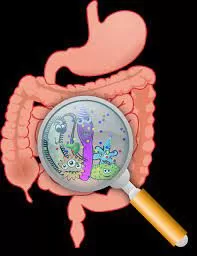July 25, 2024
An investigation by The BMJ has raised serious concerns about the marketing practices of private umbilical cord blood biobanks in the UK. The report reveals that some companies may be inflating the potential benefits of storing umbilical cord blood, leading expectant parents to make costly decisions based on misleading claims.
Over the past decade, there has been a surge in the number of parents choosing to store umbilical cord blood—a rich source of stem cells—hoping it might one day help treat serious health conditions. Private biobanks charge between £550 and £3,000 for the initial collection and freezing of cord blood, with annual storage fees exceeding £100.
Biobanks promote these services as a safeguard for the child’s future health, claiming that stem-cell therapies can treat a variety of life-threatening diseases. Cells4Life, the UK’s largest cord blood bank, asserts that its services can address over 80 different conditions, including cancers, blood disorders, and even autism. They also suggest that cord blood stem cells have the potential to “regrow entire organs.”
However, experts in regenerative medicine caution that such claims may be misleading. Charles Murry, Director of the Institute for Stem Cell and Regenerative Medicine at the University of Washington, and Pietro Merli, a pediatrician at Italy’s Bambino Gesù Pediatric Hospital, criticize the exaggerated promises. Murry explains that while umbilical cord blood does contain stem cells, these are largely limited to becoming blood cells or connective tissue, not the wide range of cell types as some companies suggest.
Cells4Life’s marketing materials reference research published in the Journal of Stem Cells Research, Development & Therapy, but The BMJ investigation found that the journal’s peer-review process is questionable. The article cited was published just 17 days after submission, a timeline much shorter than the standard peer-review period. Moreover, two editors listed on the journal’s board denied holding these roles.
SmartCells and Future Health, other private cord blood banks, also make ambitious claims about the transformative potential of stem cells, suggesting they could repair or regenerate nearly any type of tissue. However, these assertions are disputed by experts like Merli, who notes that many conditions can be treated with allogeneic stem cells from matched donors rather than autologous stem cells from the patient.
The Royal College of Obstetricians and Gynaecologists and the Royal College of Midwives both recommend against commercial cord blood banking unless there is a specific medical reason. This perspective is reinforced by Italy’s regulations prohibiting exaggerated claims about stem cell therapy in advertising.
In response to The BMJ’s findings, Cells4Life defended its position, citing ongoing research into the future applications of perinatal stem cells. However, Murry and Merli highlight that alternative methods, such as creating induced pluripotent stem cells from adult cells, can achieve similar results without necessitating cord blood storage.
As more parents consider cord blood banking, it’s crucial for them to critically evaluate the claims of biobank companies and consult with medical professionals to make informed decisions. For more information, refer to The BMJ’s detailed report on this issue.
For further details, read “Cord blood banking: Experts raise concern over claims made for stem cell applications” in The BMJ (2024). DOI: 10.1136/bmj.q1581.












